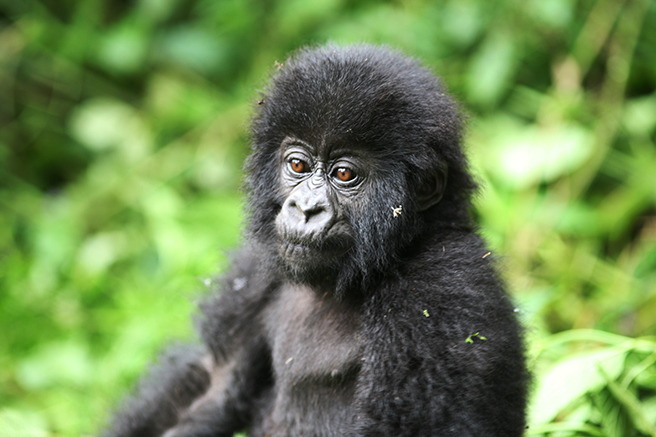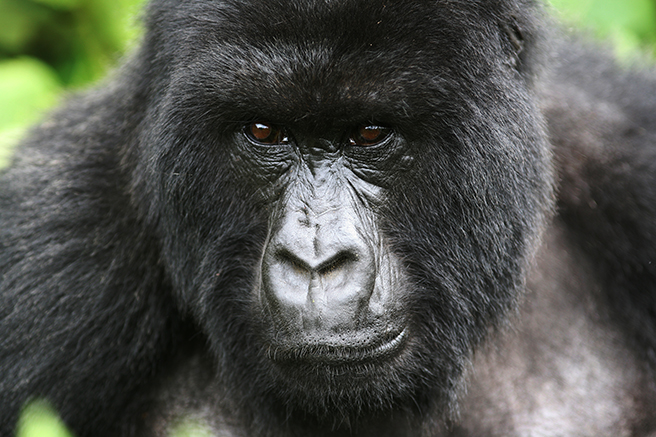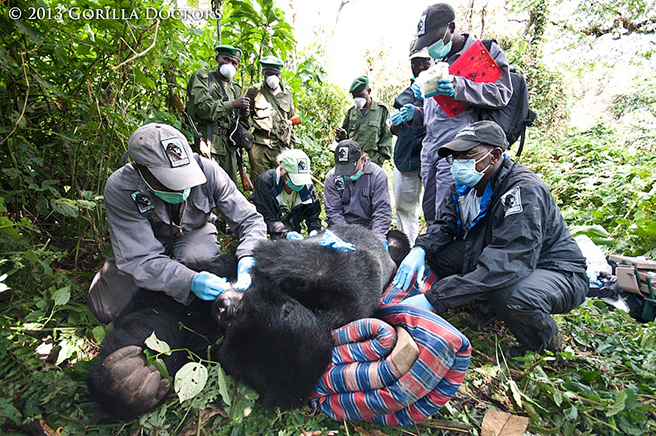The ABC's of Gorilla Safari Planning

Tracking mountain gorillas in the dense rainforests of Uganda or Rwanda is a once in a lifetime safari experience. Spending time with these gentle giants in their natural habitat is one of the most emotional and memorable wildlife encounters in the world.
It is also a great way to contribute towards the future survival of this iconic African wildlife species. Gorilla trekking is one of responsible tourism’s success stories and has helped the species recover from near extinction in the mid 1970s, when they numbered less than 400, to a population of nearly 900 today. Permits to track the gorillas are not cheap – tariffs are currently $500 per day in Uganda and $750 in Rwanda – but the fees help support both conservation and community projects and the gorilla has become a valuable commodity at a local and national level.

The fate of the mountain gorillas may have improved significantly with gorilla tourism, but as a species they are still very much under threat. Poachers looking for bush meat from small antelopes lay traps which can injure and even kill gorillas. Gorilla Doctors, a team of vets dedicated to providing medical care to the gorillas, had attended to four separate incidents of snare injuries within the first few weeks of 2013. The African Wildlife Foundation has also reported a surge in animal traffickers trading illegally in infant gorillas – with live specimens fetching up to $40,000 on the black market.
Even the tourists visiting the gorillas themselves can pose a threat – gorillas are so susceptible to human illness and bacteria there is a strict limit to the number of tracking permits issued per day and a minimum distance rule of seven meters. Some conservationists even believe you should wear a facemask to protect the gorillas from inadvertently passing on any human bacteria. And if you have a cold or influenza, you will not be permitted to track, facemask or not!

So with this much at stake, you want to be sure you are travelling with the right tour operator when you go gorilla trekking in Uganda or Rwanda. When planning your safari, just ensure you follow a few simple guidelines:
- Choose a reputable tour company who actively supports wildlife conservation in the areas they operate – Journeys Discovering Africa makes a donation to Gorilla Doctors or the Uganda Conservation Foundation for every guest that travels on a gorilla safari with them
- Ask your operator (or safari lodge) for more information about additional community tourism activities you can enjoy in the area – this way, more of your money stays in the local community
- Set an example on minimizing the transmission of human-gorilla bacteria by using anti-bacterial wipes or hand-wash just before approaching the gorilla group, and consider wearing a surgical face mask/cotton scarf to cover your nose and mouth
- Follow proper gorilla tracking etiquette when in the forest:
- Wash your hands before you head out on your trek.
- Do not leave any rubbish in the forest.
- Maintain a minimum distance of 7 meters at all times.
- Do not eat or drink when you are near the gorillas.
- If you have the urge to cough or sneeze, turn your head and cover your nose and mouth.
- If you are feeling ill, or have a contagious disease, volunteer to stay behind. Your visit may be re-arranged or refunds will be made as per the policies in each country.
Photos 1,2 by Nick Hoggett; Photo 3 by Gorilla Doctors